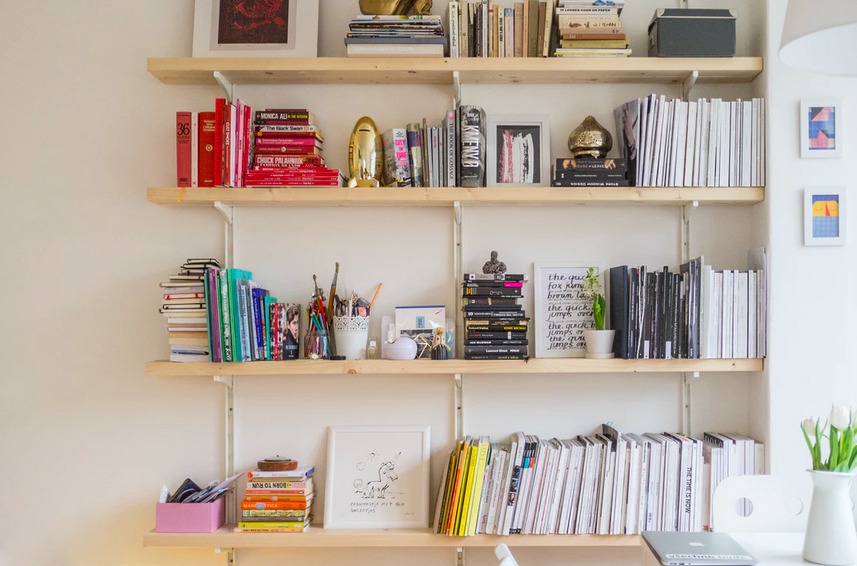The job search process can be daunting. You have to spruce up your resume, nail your cover letter, and go on a string of interviews that can be more nerve-wracking than a first date. And today’s job search means that you’re sending emails. Lots and lots of emails. And sending emails isn’t just surprisingly stressful—it also sucks away a lot of valuable time. I’ve pulled together five job search email templates so you can focus on impressing your interviewer and landing the job. Use these job search email templates to shave hours off of your job application process!

5 Essential Job Search Email Templates
1. How to email a contact for a referral
Have you ever wondered if applications you send online go into a black hole never to be seen (or heard from) again? I have! The best way to make sure that your resume gets seen by a human is through a referral. Do a quick LinkedIn search to find out if your friends, family members, and connections know someone who works at the company. Now it’s time to reach out to them using this job search email template.
Dear X,
[Note: Start with something friendly depending on how well you know the person. It can range from “It was so great seeing you yesterday at lunch,” to “Congratulations on your most recent article in Fast Company!” Don’t jump right to the ask.]
I saw on [LinkedIn/Facebook] that you know [Name] from [Company]. I just applied to be a [position title] there. I’m excited about the opportunity and the company because [tell them why]. If you would be comfortable, would you forward my resume and cover letter along to [Name]? I would appreciate it!
Best,
[Name]
2. How to email your cover letter and resume
If the job you’re applying for specifically requires a cover letter (and not the more modern cover email), you’ll have to write an email with your cover letter and resume attached. Instead of repeating your cover letter in that email, write a short note indicating that you’ve attached the necessary information, including a tiny preview of what’s inside those attachments.
Dear X [Do some research and find the name of the hiring manager],
I was so excited to see the opening for the [job title] position. [Tell a quick story about how you discovered the position or the company.] I’ve attached my resume and cover letter, which explain all about my [tiny summary of experience featured in your resume] and what I can do for [company]. Please let me know if I can provide further information.
Thank you for your consideration.
Best,
[Name]
3. How to Send a thank you note after an interview
The number one rule of interviewing: Always send a thank you note (or, in this case, a thank you email). If you’ve interviewed with multiple people, send each of them a separate email mentioning something you discussed. Use your thank you note as another opportunity to reiterate why you are interested in the company and the position and why you’d be a great fit for the role!
Dear X,
Thank you so much for taking the time to meet with me today. I enjoyed learning more about [the company] and [the position]. [A sentence about why you’re excited about the opportunity to work at the company.] I think that my experience with [your skills that would be relevant to the job i.e. content strategy, community management, client relationship management, long-form content, and the creative process] mean I could contribute to the team right away.
Thank you again!
Best,
[Name]
4. How to follow up on your application after an interview
So it’s been a few weeks and you haven’t heard back. Take the initiative by politely following up. It will show that you are still interested in the position and the company. Instead of just asking if they’ve made a decision, offer to share information and complete something that would be helpful to them.
Dear X,
Thank you again for meeting with me and introducing me to more of the team. I’m excited about the opportunity to work at [company name].
Do you have any updates on the position? And if it’s useful to you, [Share more information about you like an article you published, an award you won, or a big project you completed in school like your thesis.]
[If you’ve noticed an exciting change for the company like a site redesign, raising funding, or an award, mention it!]
Best,
[Name]
5. How to ask someone to be your reference
When you are interviewing for a job, potential employers will almost always ask for references. Checking references is usually one of the last steps of the hiring process so it means that there is a high likelihood that you will get the job—don’t let poor or lackluster references keep you from your dream job!
Always prep your references by asking them for their permission in advance. There are a few reasons why this is an important step:
-One reason is that it gives the person an out. If the person doesn’t think that they worked closely enough with you or didn’t have a positive working relationship with you, they can say that it would be better for you to choose someone else.
-Another reason to ask permission is that it is the polite thing to do.
-Asking permission also allows you to explain the company, the position, and any information that might be pertinent to helping them provide a stellar reference for you.
Dear X,
I hope that you are doing well! I recently applied to [position title] at [company name] and I’d love to list you as a reference since we worked so closely together at [company name]. [Provide background information about the company, the position, and any skills you think the employer is looking for.]
[Mention anything about your current career progression if you haven’t worked together recently.] Please let me know if I can list you as a reference.
Thank you!
Best,
[Name]
This post was originally published on Skillcrush.
































Pingback: How to Write a Job Interview Thank You Note